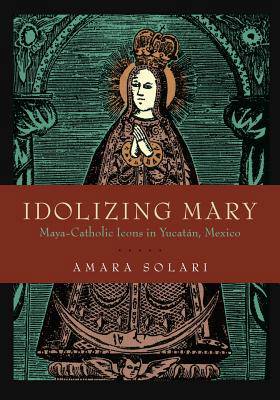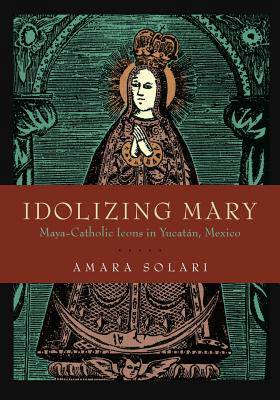
- Afhalen na 1 uur in een winkel met voorraad
- Gratis thuislevering in België vanaf € 30
- Ruim aanbod met 7 miljoen producten
- Afhalen na 1 uur in een winkel met voorraad
- Gratis thuislevering in België vanaf € 30
- Ruim aanbod met 7 miljoen producten
Omschrijving
In the summer of 1648, yellow fever appeared for the first time on the Yucatán Peninsula, claiming the lives of roughly one-third of the population. To combat this epidemic, Spanish colonial authorities carried a miracle-working Marian icon in procession from Itzmal to the capital city of Mérida and back again as a means of invoking divine intercession. Idolizing Mary uses this event and this icon to open a discussion about the early and profound indigenous veneration of the Virgin Mary.
Amara Solari argues that particular Marian icons, such as the Virgin of Itzmal, embodied an ideal suite of precontact numinous qualities, which Maya neophytes reframed for their community's religious needs. Examining prints, paintings, and early modern writings about the Virgin of Itzmal, Solari takes up various topics that contributed to the formation of Yucatán Catholicism--such as indigenous Maya notions of sacrality, ritual purity, and the formal qualities of offering vessels--and demonstrates how these aligned with the Virgin of Itzmal in such a way that the icon came to be viewed by the native populations as a deity of a new world order.
Thoroughly researched and convincingly argued, Idolizing Mary will be welcomed by scholars and students interested in religious transformation and Marian devotion in colonial Spanish America.
Specificaties
Betrokkenen
- Auteur(s):
- Uitgeverij:
Inhoud
- Aantal bladzijden:
- 200
- Taal:
- Engels
Eigenschappen
- Productcode (EAN):
- 9780271083322
- Verschijningsdatum:
- 8/10/2019
- Uitvoering:
- Hardcover
- Formaat:
- Genaaid
- Afmetingen:
- 188 mm x 262 mm
- Gewicht:
- 952 g

Alleen bij Standaard Boekhandel
Beoordelingen
We publiceren alleen reviews die voldoen aan de voorwaarden voor reviews. Bekijk onze voorwaarden voor reviews.











